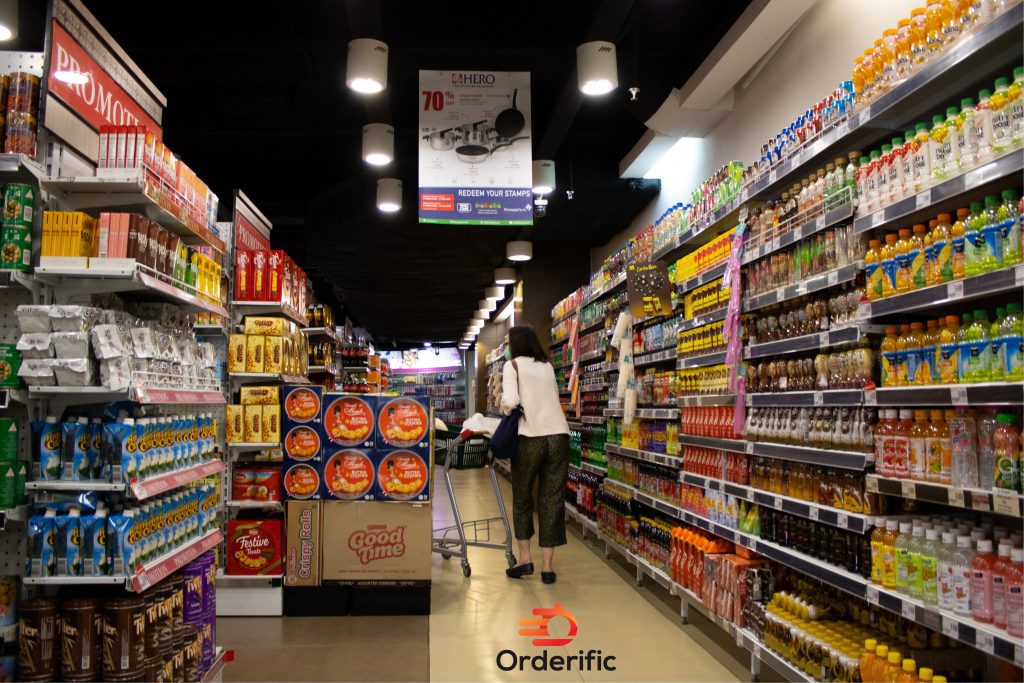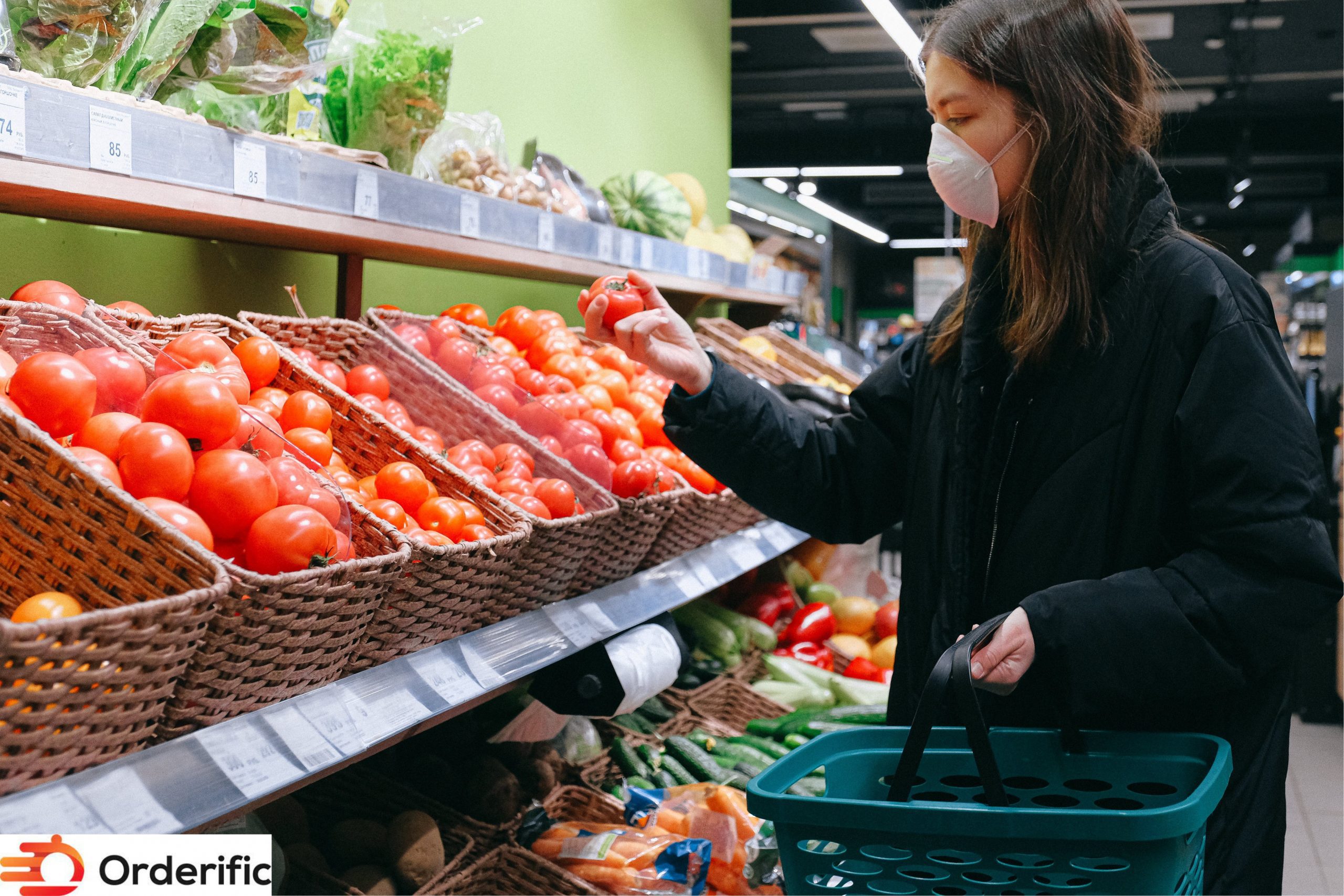Introduction
In the complex world of Community relations, local produce, and social responsibility, supermarkets are uniquely positioned to foster robust community relations and embrace corporate social responsibility (CSR). These CSR initiatives can help supermarkets become more than just businesses, transforming them into pillars of their local communities. This guide explores how supermarkets can leverage their public relations and community involvement to support local producers, boost sustainability, and engage in social investment. We’ll delve into the role of employees in these initiatives, the importance of community engagement, and the impact of these practices on various stakeholders, including indigenous people. Through such initiatives, supermarkets can strengthen their corporate citizenship, contribute to feeding America, and promote animal welfare and human rights, all while creating a positive presence on social media.
What Is Community Retailing?
Community retailing stands at the intersection of business practice and corporate social responsibility (CSR). It is a powerful method for supermarkets to foster strong community relations and make significant social investments. By promoting local produce and sustainable business practices, supermarkets can effectively support their local communities and engage in meaningful CSR initiatives.
Public relations play a pivotal role in community retailing. Through strategic public relations efforts, supermarkets can promote their involvement in local communities, highlighting their commitment to sustainability and corporate citizenship. This includes engaging with indigenous people recognizing their rights and contributions to the local economy and food supply.
Employee engagement is another crucial aspect of community retailing. Supermarkets can foster a company culture that prizes community involvement, encouraging employees to participate in local events and initiatives like United Way fundraising. Such engagement can help to boost the company’s image on social media platforms, where employees and customers alike can share their positive experiences.
Furthermore, community retailing can significantly contribute to feeding America. By sourcing goods from local producers, supermarkets can help to reduce food insecurity and promote animal welfare. At the same time, protecting customers’ personal information is a critical aspect of building trust with the local community.
Overall, community retailing offers an effective way for supermarkets to reinforce their commitment to CSR, community engagement, and public relations, all while serving the needs of their local communities.
4 Ways To Build Community Through Retail
1. Be Authentic
Authenticity is the cornerstone of successful community relations. Supermarkets can foster authenticity by promoting local produce and prioritizing corporate social responsibility. Consumers increasingly value transparency and a sense of genuineness from the businesses they support. By openly communicating their commitment to local sourcing, emphasizing the quality and sustainability of their products, and showcasing their involvement in community initiatives, supermarkets can project an image of authenticity. This involves showcasing the real stories behind the local products they carry, thus giving consumers a connection to the community and a reason to choose the supermarket over competitors. By being authentic, supermarkets can build trust with their customers, enhance their public relations, and strengthen their community connections.
2. Host In-Store Events
In-store events provide an excellent platform for supermarkets to build and strengthen community relations. Hosting local artists, chefs, or farmers not only brings a unique shopping experience to customers, but also promotes the local talent, culture, and products. Examples of such events can be cooking demonstrations using locally sourced ingredients, artist showcases, or farmer meet-and-greets. These events also offer opportunities for direct interactions with the community, facilitating dialogue and promoting the brand’s commitment to corporate social responsibility. Furthermore, they create engaging content for social media platforms, enhancing the supermarket’s online presence. Thus, in-store events are a strategic public relations tactic that supports community engagement and fosters a strong sense of community identity.
3. Leverage Your Digital Community
In the digital age, leveraging your online community is a crucial component of building community relations. Supermarkets can utilize their social media platforms to engage with customers, share updates about CSR initiatives, and promote local products. They can run contests, encourage user-generated content, or start online conversations about local issues. This fosters a sense of community in the digital space and gives customers a platform to voice their opinions and share their experiences. Moreover, supermarkets can use these platforms to demonstrate their commitment to data privacy, reinforcing the trust of their customers. By skillfully leveraging their digital community, supermarkets can enhance their public relations, boost their brand image, and strengthen their ties with the local community.
4. Tap Into The Local Community
Tapping into the local community is a salient way for supermarkets to build strong community relations. This can be achieved by actively participating in community events, sponsoring local sports teams, or collaborating with local schools. Such actions, clearly demonstrate a supermarket’s commitment to corporate social responsibility and its investment in the well-being of the local community. Supermarkets can also support local initiatives aimed at reducing food insecurity, animal welfare, or promoting human rights. This not only strengthens public relations but also enhances the supermarket’s image as a socially responsible entity. In addition, supermarkets can hire locally, thereby contributing to the local economy and emphasizing their commitment to community development. By tapping into the local community, supermarkets solidify their position as valuable community members, serving and supporting those around them.
11 Examples Of Community Retail

1. 3 Rivers Outdoor Co.
3 Rivers Outdoor Co. epitomizes community retail through its commitment to corporate social responsibility (CSR) and community engagement. This company has embedded sustainability in its business practices, sourcing goods locally and investing in initiatives that promote animal welfare and human rights. Its robust public relations strategy highlights its role as a corporate citizen committed to feeding America and supporting the local community.
The company makes use of social media to promote its CSR initiatives and community involvement, enhancing employee engagement and fostering stronger community relations. They value the contributions of indigenous people, tapping into their knowledge and skills to further their sustainability efforts. Protecting the personal information of customers is given due importance, reinforcing trust and supporting their public relations objectives.
3 Rivers Outdoor Co. also partakes in United Way fundraising, showcasing its commitment to social investment and corporate giving. By prioritizing community relations and corporate social responsibility, 3 Rivers Outdoor Co. stands as a beacon of community retail, demonstrating that supermarkets can be more than just businesses; they can be pillars of their local communities.
2. Eevee’s
Eevee’s is another commendable example of a supermarket that has successfully embodied community retailing. A staunch supporter of CSR, Eevee’s has woven sustainable and responsible practices into the fabric of its operations. From sourcing locally grown produce to supporting initiatives that ensure animal welfare and human rights, the supermarket is deeply committed to the well-being of its community. Eevee’s also utilizes social media to engage with customers and employees alike, showcasing its community-centric activities and amplifying its public relations efforts. Emphasizing the importance of data privacy, Eevee’s builds trust with its customers while also actively promoting local talent and culture through in-store events. By bolstering community ties and engaging in meaningful social investments, Eevee’s underscores the transformative power of supermarkets in enriching their local communities.
3. Sunlight Sports
Sunlight Sports exemplifies the essence of community retailing by effectively promoting corporate social responsibility and fostering strong community relations. Their business model is steeped in sustainability, with a clear commitment to local sourcing and animal welfare. They also actively engage in human rights initiatives, showcasing their dedication to the broader social good. Sunlight Sports leverages social media to highlight these commitments, creating an informative, engaging, and interactive digital presence that resonates with their customers and employees. They respect and protect their customers’ personal data, further solidifying their trustworthiness. Moreover, they actively participate in community events and initiatives, including United Way fundraising, which underscores their dedication to social investment. Sunlight Sports, through its actions, embodies the potential of a supermarket to be a pillar of its local community.
4. Love Record Stores
Love Record Stores is yet another stellar model of a supermarket embracing community retail. Their commitment to corporate social responsibility is evident in their dedication to locally sourced products, animal welfare, and initiatives promoting human rights. Through their active public relations strategy, they spotlight their community involvement, making a significant contribution to feeding local communities. Social media is skillfully utilized to highlight their sustainability initiatives and community engagement, fostering a strong online presence. With a keen focus on the privacy of customer data, they earn the trust of their digital community. Love Record Stores also actively participates in local events such as United Way fundraising, demonstrating their commitment to social investment. As a supermarket, their actions reinforce the belief that businesses can indeed contribute significantly to the welfare of their local communities.
5. LIVELY
LIVELY is a shining example of a supermarket that underscores the importance of community retail. They champion corporate social responsibility through their unwavering commitment to sourcing locally, promoting human rights, and advocating for animal welfare. LIVELY’s efforts to nourish their community are showcased through an effective public relations strategy and a robust social media presence. Their commitment to data privacy is vital in building customer trust. Their active participation in community events and initiatives, such as United Way fundraising, amplifies their social investments. By combining community relations, CSR, and public relations, LIVELY demonstrates the power supermarkets hold in shaping and supporting their local communities.
6. Peak Design
Peak Design stands out as a supermarket committed to community retail, with a robust focus on corporate social responsibility. Their dedication to sourcing local produce aligns with their commitment to sustainability, animal welfare, and human rights. Peak Design’s active engagement in community events and initiatives, such as United Way fundraising, underscores their investment in local society. Their public relations strategy shines a spotlight on these commitments, with a strong social media presence to enhance customer and employee engagement. Additionally, their dedication to data privacy helps build a strong base of trust with their customers. Through these efforts, Peak Design displays a powerful example of how supermarkets can serve as pillars of their local communities.
7. Knix
Knix is a prominent example of a supermarket that effectively utilizes community retail strategies. With a firm commitment to corporate social responsibility, Knix prioritizes sourcing local products, promoting human rights, and advocating for animal welfare. They actively engage in community initiatives, highlighting their commitment to social investment. Their public relations strategy, coupled with a dynamic social media presence, helps in communicating their CSR activities to customers and employees alike. Importantly, Knix places a high value on data privacy, resulting in enhanced trust among their customers. Through its various initiatives, Knix sets a commendable example of how supermarkets can play a significant role in supporting and enriching their local communities.
8. Hy-Vee
Hy-Vee is an example of a supermarket investing heavily in community retail. With a strong focus on corporate social responsibility, Hy-Vee sources local produce, promotes human rights, and advocates for animal welfare. They’re active in their community, participating in local events and initiatives that underscore their commitment to social investment. To boost their public relations, they utilize a strategic approach that includes a vibrant social media presence, highlighting their CSR activities. They also place a high importance on maintaining their customers’ data privacy, fostering a sense of trust. Through these initiatives, Hy-Vee showcases the integral role supermarkets can play in their local communities.
9. Studs
Studs is a compelling case of a supermarket that successfully incorporates community retail strategies. Committed to corporate social responsibility, Studs prioritizes local sourcing, human rights, and animal welfare in its operations. It actively participates in community initiatives, demonstrating its commitment to social investment. Their strategic public relations and social media presence effectively communicate their CSR initiatives to their customers and employees. Meanwhile, Studs respects customers’ data privacy, fostering trust and strengthening community relations. Through these actions, Studs epitomizes how supermarkets can significantly contribute to the welfare of their local communities.
10. Outdoor Voices
Outdoor Voices stands as a testament to the power of community retail in supermarkets. Firmly committed to corporate social responsibility, it actively prioritizes locally sourced produce, and champions initiatives promoting human rights and animal welfare. Its active participation in community events and initiatives, such as United Way fundraising, underscores its commitment to social investment. A dynamic public relations approach, combined with a vibrant social media presence, reinforces their CSR initiatives and community involvement, significantly enhancing customer and employee engagement. By placing strong emphasis on the protection of customer data privacy, trust is fostered within their consumer base. Through these actions, Outdoor Voices showcases how supermarkets can play a transformative role in supporting and enriching their local communities.
11. Carlisle Pet Foods
Carlisle Pet Foods serves as a remarkable supermarket example of embracing community retail. Their commitment to corporate social responsibility is reflected in their practices of sourcing locally, promoting human rights, and supporting animal welfare initiatives. They actively participate in community events and initiatives, indicating their dedication to social investment. Carlisle Pet Foods utilizes a strategic public relations approach, including a strong social media presence, to communicate its CSR efforts to its customers and employees. A particular focus on safeguarding customer data privacy builds trust within the community, further solidifying their public relations. Through these actions, Carlisle Pet Foods exemplifies how supermarkets can play a vital role in enhancing the welfare of their local communities.
Conclusion
In conclusion, these eleven supermarkets have demonstrated exemplary commitment to community relations, local produce, and social responsibility by integrating corporate social responsibility into their core operations. Each illustrates a unique way of fostering community relations, from sourcing locally, and advocating for human rights and animal welfare, to actively participating in community events. Their strong public relations strategies, coupled with a robust social media presence, effectively spotlight these commitments and foster engagement. Furthermore, their focus on data privacy creates a trustful relationship with their customers, cementing their position as pillars of their local communities. As supermarkets continue to play a pivotal role in shaping local communities, it’s evident that the synergy between corporate social responsibility, community relations, and public relations is not just beneficial – it’s vital. In this ever-evolving retail landscape, embracing such strategies paves the way for a socially conscious, engaged, and sustainable future.
If you are inspired by these examples and would like to explore how your supermarket can better serve its community, we strongly recommend scheduling a demo with Orderific. With their innovative solutions, you can maximize your community engagement and bring about positive change. Please click here to schedule your demo today.
FAQs
How does local produce contribute to community relations?
Local produce supports local farmers and contributes to the local economy, enhancing community relations.
What role does social responsibility play in supporting local farmers?
Social responsibility in supporting local farmers ensures their economic stability and promotes sustainable farming practices.
Why is community involvement vital for promoting local produce?
Community involvement fosters a connection between consumers and local farmers, promoting awareness and sales of local produce.
What are some effective strategies for improving community relations through local produce?
Implementing farmer’s markets, promoting locally sourced menus, and initiating education programs about local agriculture.
How can businesses balance social responsibility and profitability with local produce sourcing?
By focusing on long-term sustainability and building strong community relations, businesses can achieve a balance between social responsibility and profitability.













